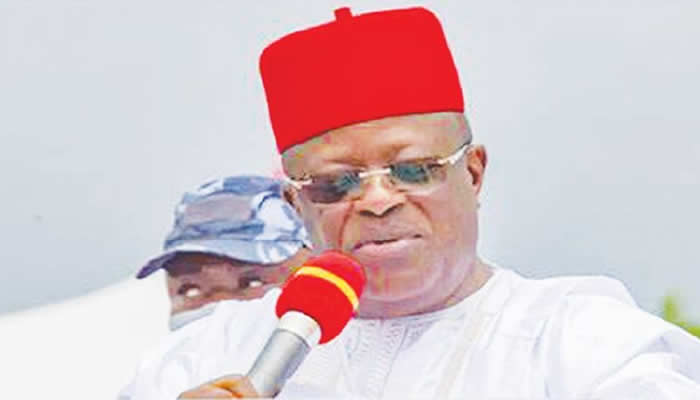The Iddo Bridge in Lagos, a critical piece of infrastructure, is facing imminent demolition due to extensive structural damage caused by unauthorized activities beneath it. The Minister of Works, Senator Dave Umahi, after an inspection conducted alongside structural engineers and officials from Julius Berger Nigeria Plc., the company contracted for the bridge’s rehabilitation, concluded that the bridge’s integrity has been severely compromised and necessitates complete reconstruction. Years of illegal occupation of the space under the bridge, transforming it into a hub of shops, warehouses, and even residential areas, has weakened the bridge’s structural supports, particularly through fires and collisions with oversized vehicles. This dire situation prompted the minister to issue an immediate evacuation and demolition order, emphasizing the urgency to prevent a catastrophic collapse and safeguard the lives of Lagosians.
The minister’s decision underscores the gravity of the situation. Visual inspections revealed that the bridge’s beams had suffered significant damage from vehicle impacts and fire, further jeopardizing its stability. The illegal occupants had been notified of the impending demolition, but their resistance, citing pending legal action, further complicated the matter. The Minister, however, maintained that the safety of the public outweighs any legal proceedings and that the demolition will proceed as planned. This decisive action reflects the government’s commitment to prioritizing public safety and preventing a potential disaster. The swift action also demonstrates the government’s resolve to address the long-standing issue of illegal occupation under the bridge, which has posed a safety hazard for years.
The demolition of illegal structures beneath the Iddo Bridge is not an isolated incident. The Cowry Bridge and the Independence Bridge are also facing similar threats due to comparable unauthorized activities. This highlights a systemic problem of encroachment on public infrastructure, which poses significant risks to both the structures and the public. The illegal occupation under these bridges not only compromises their structural integrity but also creates an unsafe environment. The Minister’s intervention at the Iddo Bridge serves as a starting point for addressing this broader issue across Lagos and potentially other parts of the country. It signals a commitment to enforcing regulations and reclaiming public spaces that have been illegally occupied.
The urgency of the demolition is further underscored by the fact that the contract for the Iddo Bridge’s rehabilitation was just awarded to Julius Berger Plc. in 2024. This indicates the pre-existing awareness of the bridge’s deteriorating condition, and the recent inspection merely confirmed the escalating risks. The low headroom clearance, a major design flaw, has contributed to frequent collisions by trucks, exacerbating the structural damage. The presence of shops selling chemicals near the bridge adds another layer of danger, as demonstrated by a previous fire incident that caused extensive damage. These factors combined to create a highly precarious situation, necessitating immediate action to mitigate the risks.
The demolition process will involve securing any valuable items found during the operation. Though the minister noted that the majority of items observed were primarily construction materials like iron doors and partitions, any recovered belongings will be documented and returned to their owners. This measure aims to mitigate losses for the occupants while prioritizing the critical safety objective. The demolition will be overseen by the Federal Controller of Works in Lagos State, Mrs. Olukorede Kesha, to ensure the complete removal of all illegal structures by the close of business on Monday. This swift and decisive action reflects the urgency of the situation and the government’s commitment to preventing a potential tragedy.
The demolition of the illegal structures under the Iddo Bridge serves as a critical step towards ensuring public safety and preventing a potential disaster. The Minister’s decisive action, supported by expert assessments and visual evidence of the bridge’s compromised state, highlights the gravity of the situation. The demolition is not simply about removing illegal structures; it’s about safeguarding lives and protecting vital infrastructure. The broader implications of this intervention extend to other similarly affected bridges in Lagos and potentially nationwide, signifying a move towards greater enforcement of regulations and the reclamation of public spaces. This action sends a strong message about the government’s commitment to prioritizing public safety and taking proactive measures to prevent future tragedies.














